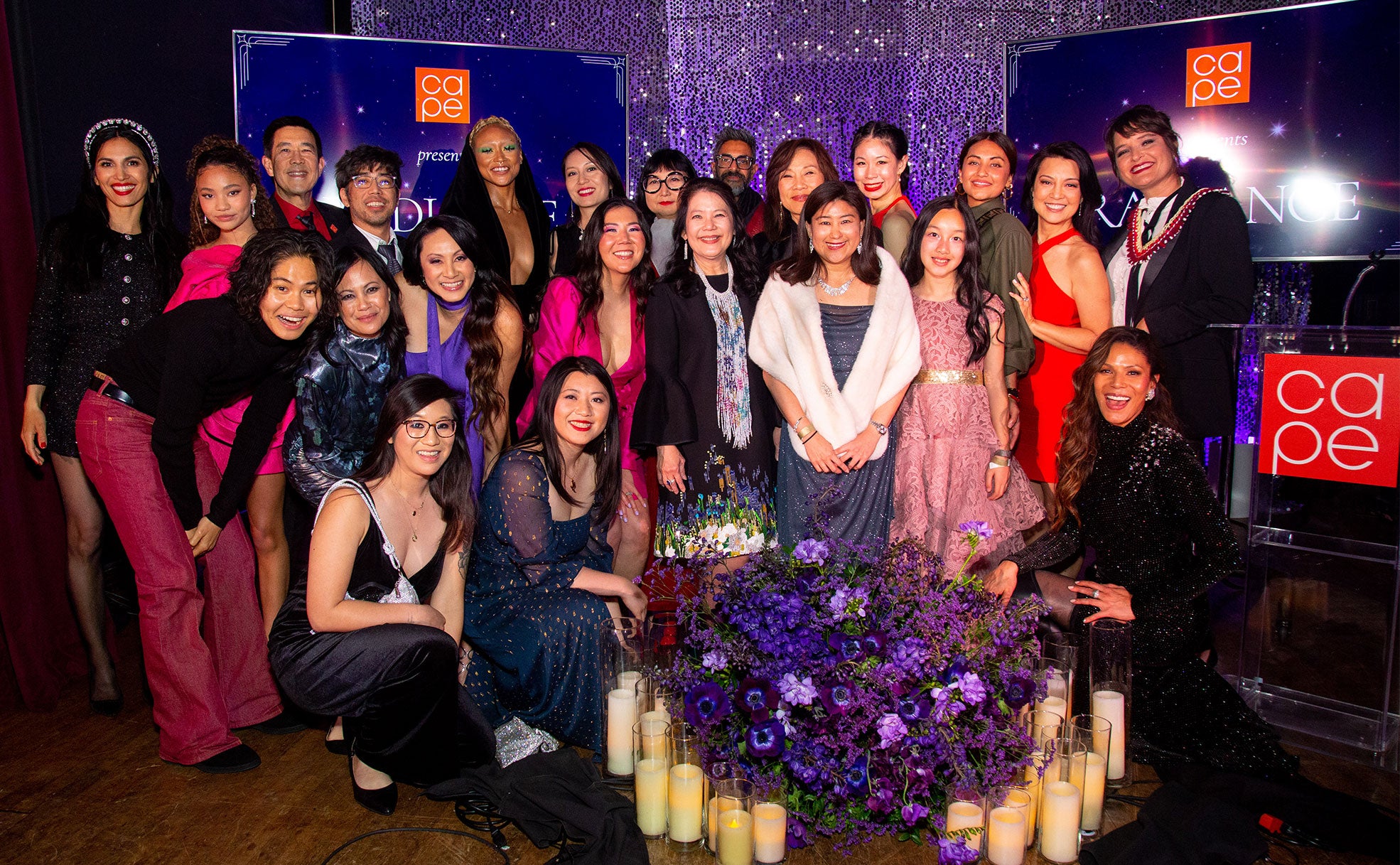
Advancing API Representation in Film & TV
Growing up in the 1980s and 1990s, it’s hard to remember much Asian representation on screen. If there were any at all, they were rarely positive depictions of an Asian person that made us feel proud. There were a few breakthroughs from the Joy Luck Club to Margaret Cho’s All-American Girl that seemed like we were starting to see change. But sadly, it was rare and it didn’t last. And yes, there were Asian characters who performed cool martial arts skills, but we were and are so much more than that.
Unfortunately, the majority of the Asian representation on film and TV at the time were often stereotypical. We were the nerdy sidekicks, people to make fun of, and perpetual foreigners who were never the lead and never desirable. And what we saw of Asian women on screen were harmful stereotypes - submissive, exotic, hypersexualized femme fatales. It was like Hollywood was telling the world that all of these stereotypes were acceptable and true.
It’s reassuring now to look at Asian - and even Pacific Islander - representation on screen today. There are a lot more positive portrayals of Asians and Pacific Islanders (API) for us, particularly the younger generation, to reference. However, there are still so many different, nuanced API stories to tell.
CAPE (Coalition of Asian Pacifics in Entertainment) is a non-profit organization that advances representation for Asian and Pacific Islander creators and executives in Hollywood and we are excited for CAPE to be our cause partner this quarter! CAPE champions diversity by educating, connecting, and empowering Asian and Pacific Islander artists and leaders in entertainment and media.
We had the opportunity to chat with Michelle K. Sugihara, the Executive Director of CAPE, about the origins of the organization, the challenges with working to advance API representation in TV and film, advice to those looking to pursue a career in the entertainment field, and more.
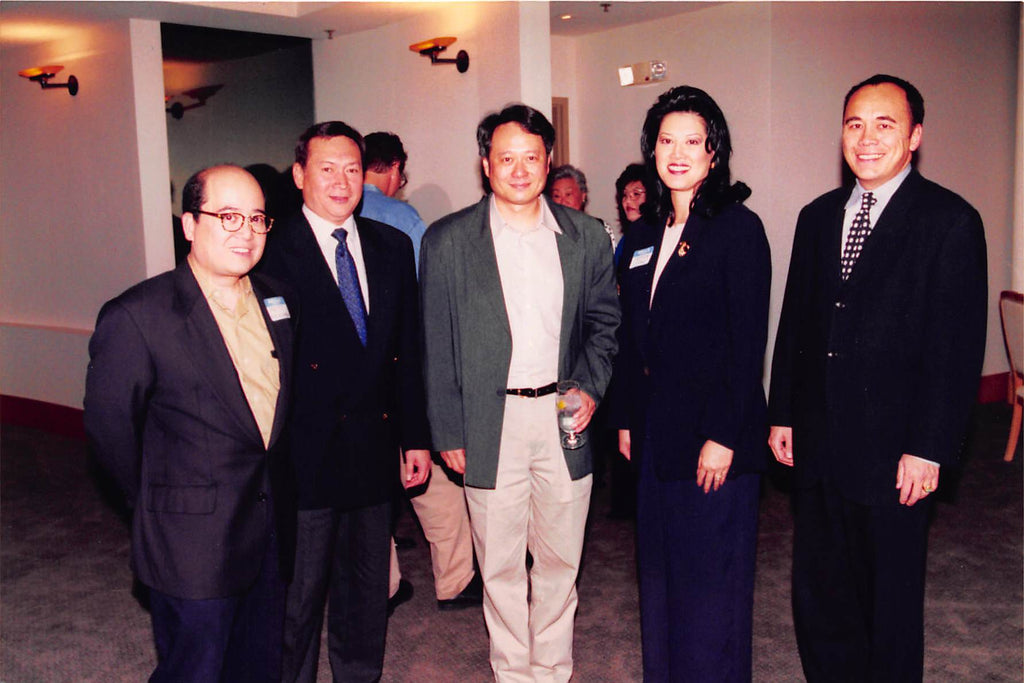 Archival from 1995 - Founders Chris Lee, Wenda Fong, and Fritz Friedman with Director Ang Lee.
Archival from 1995 - Founders Chris Lee, Wenda Fong, and Fritz Friedman with Director Ang Lee.
CAPE was founded in 1991 by Asian American executives working in Hollywood who saw a lack of API representation in film and TV. What are your thoughts on how representation has progressed over the last three decades?
CAPE started over 32 years ago when there were more space aliens than Asians on screen. Since then, CAPE has advanced representation from the writers room, to the board room, to your living room through talent and professional development programs, script consultations, trainings, referrals from our CAPE database, and by supercharging the success of film and episodic releases through #GoldOpen and other promotional activations. Fortunately, Asian and Pacific Islander (API) representation in film and TV have come a long way over the last thirty years, but it’s only been thanks to the efforts of so many incredible advocates pushing for the last hundred years that we’re now at this moment of unprecedented API representation. It’s thrilling to see a movie like Everything Everywhere All at Once sweep the Oscars, and the wins we work for every day include getting more API writers staffed on TV shows and helming features, or getting more API development executives promoted to senior ranks and the C-suite, or directly funding emerging API filmmakers will pay dividends in increasing the nuance and authenticity of API stories on screen.
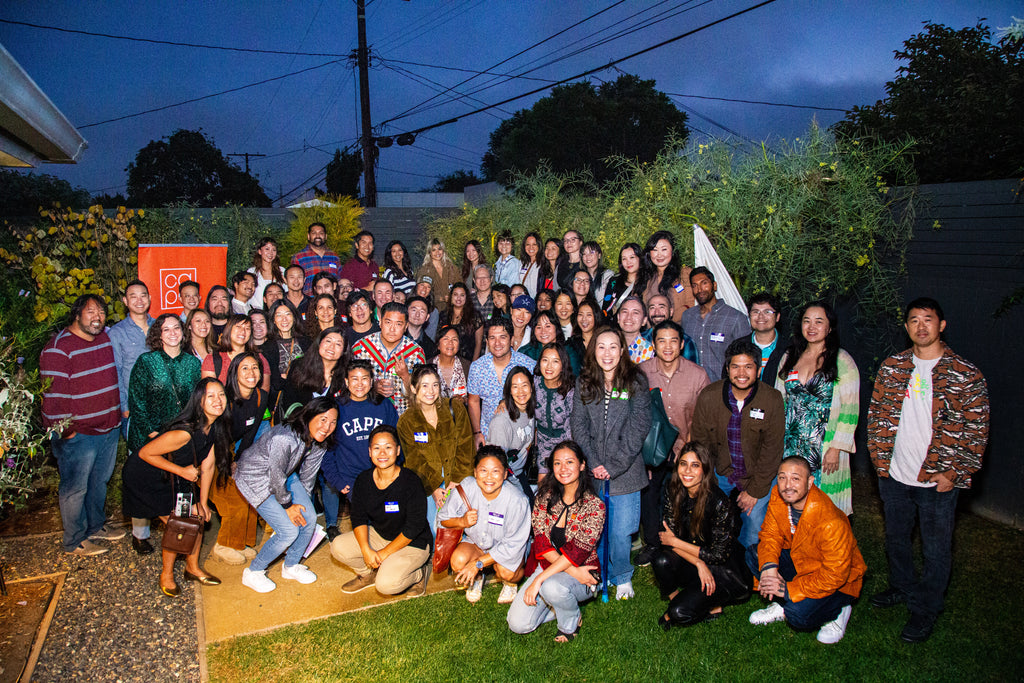 Asian American Native Hawaiian and Pacific Islander TV Writers Happy Hour 2023. Photo Credit: Hao Feng @haothefeng
Asian American Native Hawaiian and Pacific Islander TV Writers Happy Hour 2023. Photo Credit: Hao Feng @haothefeng
What are the major challenges to overcome in order to increase the visibility of APIs in the entertainment industry?
The goal is not only to increase the representation of APIs on screen, but to create more nuanced narratives for APIs. At CAPE, we believe more accurate representation can only come about by changing the ecosystem in which these stories are created. In order to see more API stories on screen, we need more API writers creating those stories with roles for API actors, and API executives greenlighting and shepherding those narratives.
We also want to acknowledge that “API” is a large umbrella that serves many diverse communities. Challenges faced by Asian and Asian American communities may not be the same issues faced by Pacific Islander communities. This speaks to a major need to strengthen pathways for Pacific Islander creatives and executives to be able to increase their reach in the entertainment industry.
We believe what we see on our screens should reflect the world we want to see. We work to create long-lasting and systemic change in Hollywood. By increasing API representation in front of and behind the camera, we can use our stories to combat stereotypical, harmful, and dangerous representations of API communities in film and TV.
 Speakers Karen Gaviola and Randall Park with moderator Laura Sirikul at Lightbox Expo 2023. Photo Credit: Hao Feng @haothefeng
Speakers Karen Gaviola and Randall Park with moderator Laura Sirikul at Lightbox Expo 2023. Photo Credit: Hao Feng @haothefeng
What advice would you like to give to young people in the API community and those in the community who haven't caught their break yet but who are trying to pursue a career in the entertainment industry?
You are not alone. There is a whole community of creative people here who want you to succeed. Reach out, show up, and start making those connections, and remember to treat everyone you meet along the way with kindness and respect.
What are some of the most impactful or successful partnerships or programs that CAPE has been a part of to help advance API representation in the entertainment field?
Our flagship program, the CAPE New Writers Fellowship, celebrated its 12th cohort this year. We foster emerging TV writers and graduates of the writers program have been staffed on over 65 shows across every major network, streaming platform, and cable channel. Our CAPE Leaders Fellowship, which focuses on film and TV development executives, has seen over 45 promotions with executives who have worked on over 140 films and series. Through our Julia S. Gouw Short Film Challenge, in partnership with Janet Yang Productions, for API Women and Non-Binary Filmmakers, we’ve granted $160,000 directly to the filmmakers to make eight short films, many of which have screened at film festivals such as Sundance, SXSW, LA Asian Pacific Film Festival, CAAM, and one that is now longlisted for an Oscar. We are also in our second year of the CAPE Animation Directors Accelerator, aimed at boosting animation professionals on the cusp of directing an animated feature into the next level of their career. We will soon be entering into our 5th cycle of the CAPE List, in partnership with The Black List, which features top API feature scripts. Alumni from our CAPE Leaders Fellowship are also giving back as co-chairs of our newly launched CAPE Emerging Executives Committee, a first-of-its-kind initiative to fast-track the next generation of API assistant- and coordinator-level employees in Hollywood. We’ve also had the privilege of consulting on over 200 projects and have launched research reports with partners such as the Geena Davis Institute on Gender in Media and The Asian American Foundation.
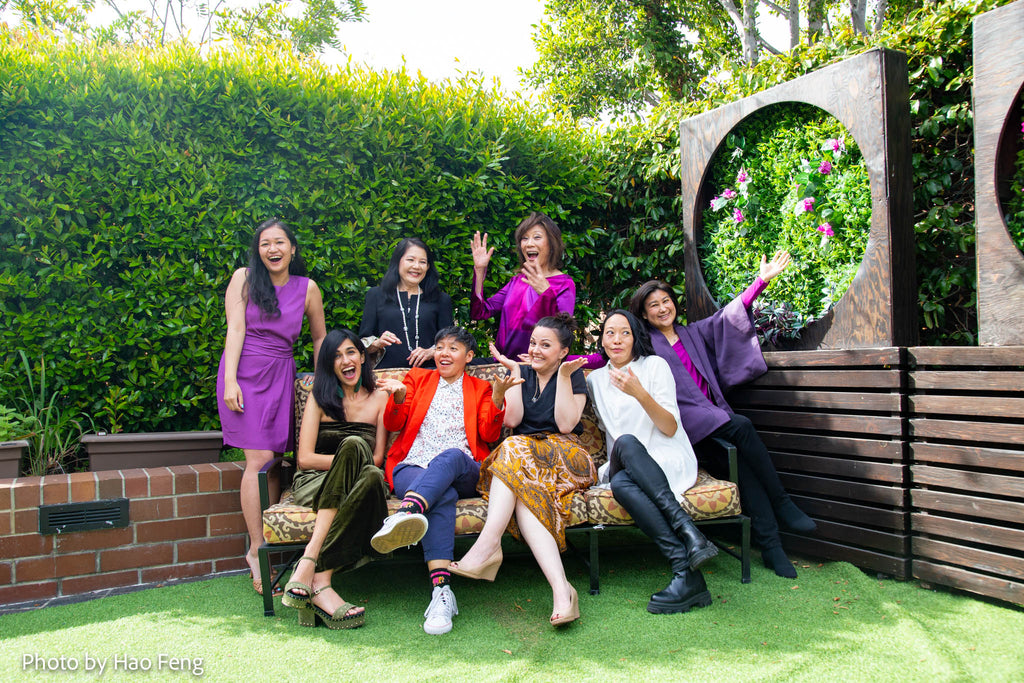 CAPE, Janet Yang, and Julia S. Gouw with the grantees of the 2022 Julia S. Gouw Short Film Challenge for API Women and Non-Binary Filmmakers. Photo Credit: Hao Feng @haothefeng
CAPE, Janet Yang, and Julia S. Gouw with the grantees of the 2022 Julia S. Gouw Short Film Challenge for API Women and Non-Binary Filmmakers. Photo Credit: Hao Feng @haothefengWhat is the best way for people, including allies, to support the work that CAPE is doing?
As a 501(c)(3) nonprofit, your support directly helps sustain the work we do! We are always trying to scale the types of services we can provide and all funds raised go towards sustaining our programs and initiatives. You can find out more about our work at our website capeusa.org, follow us on Instagram (@capeusa) or donate at https://www.capeusa.org/donate - if you donate $200+ before the end of the year or set a monthly recurring donation of $30+, you’ll receive special invitations to CAPE events and programs in 2024.
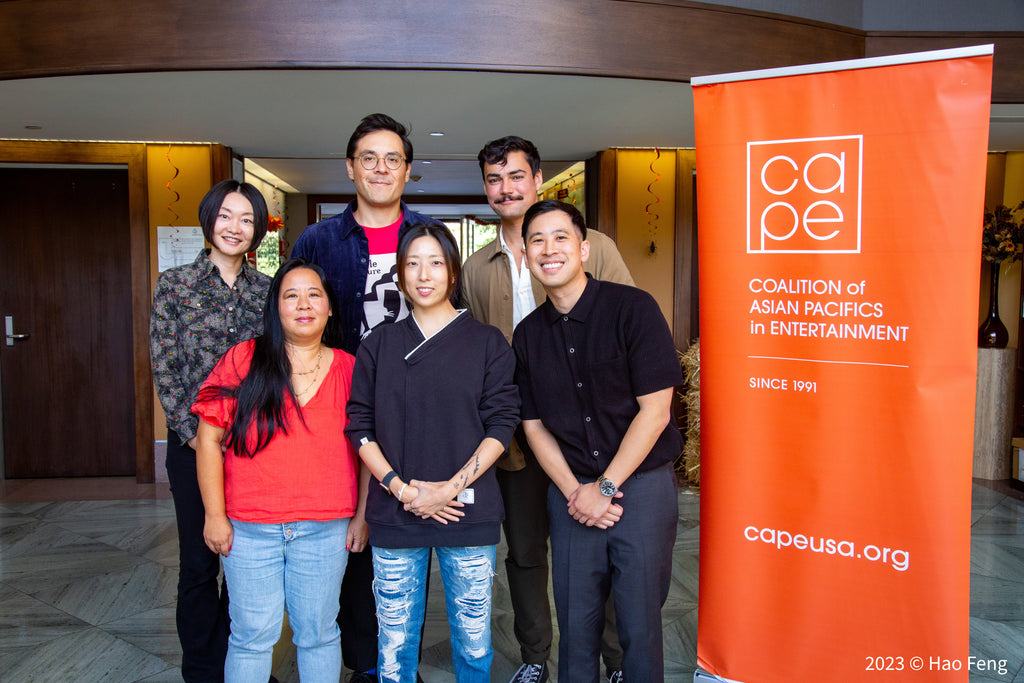 CAPE Animation Directors Accelerator 2023 cohort. Photo Credit: Hao Feng @haothefeng
CAPE Animation Directors Accelerator 2023 cohort. Photo Credit: Hao Feng @haothefeng
To learn more about CAPE and to donate to them directly, visit their website at capeusa.org and follow them at @capeusa on Instagram. Also shop our Very Asian x WE ARE CHIMMI capsule collection where a portion of profits from sales benefit CAPE.